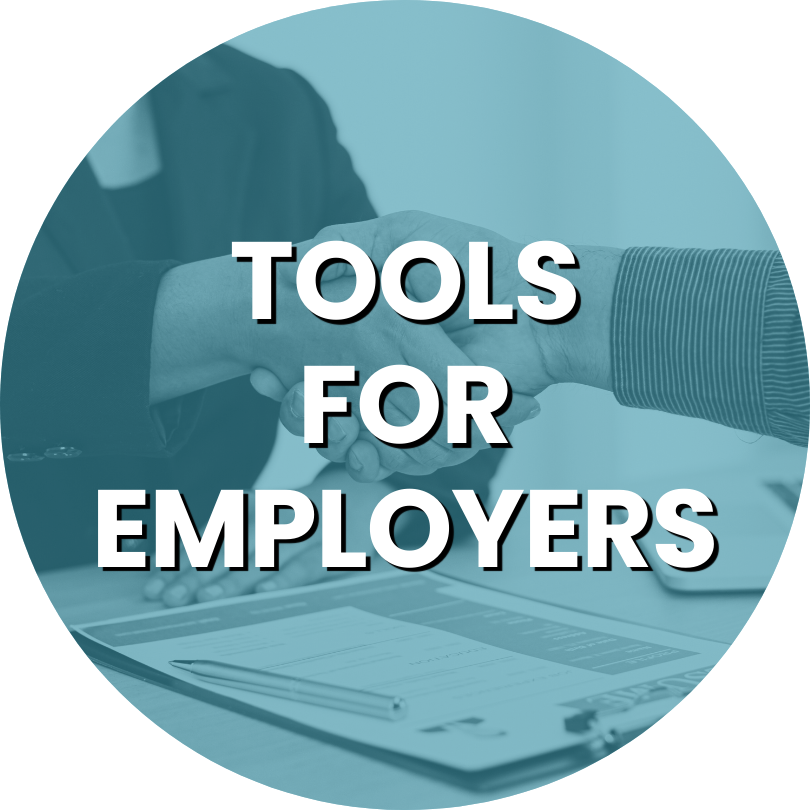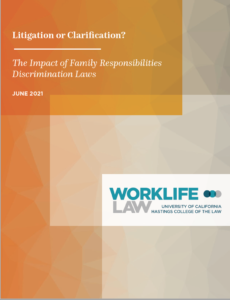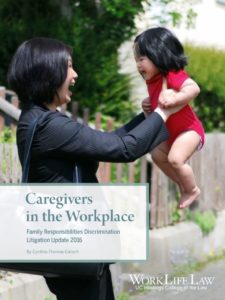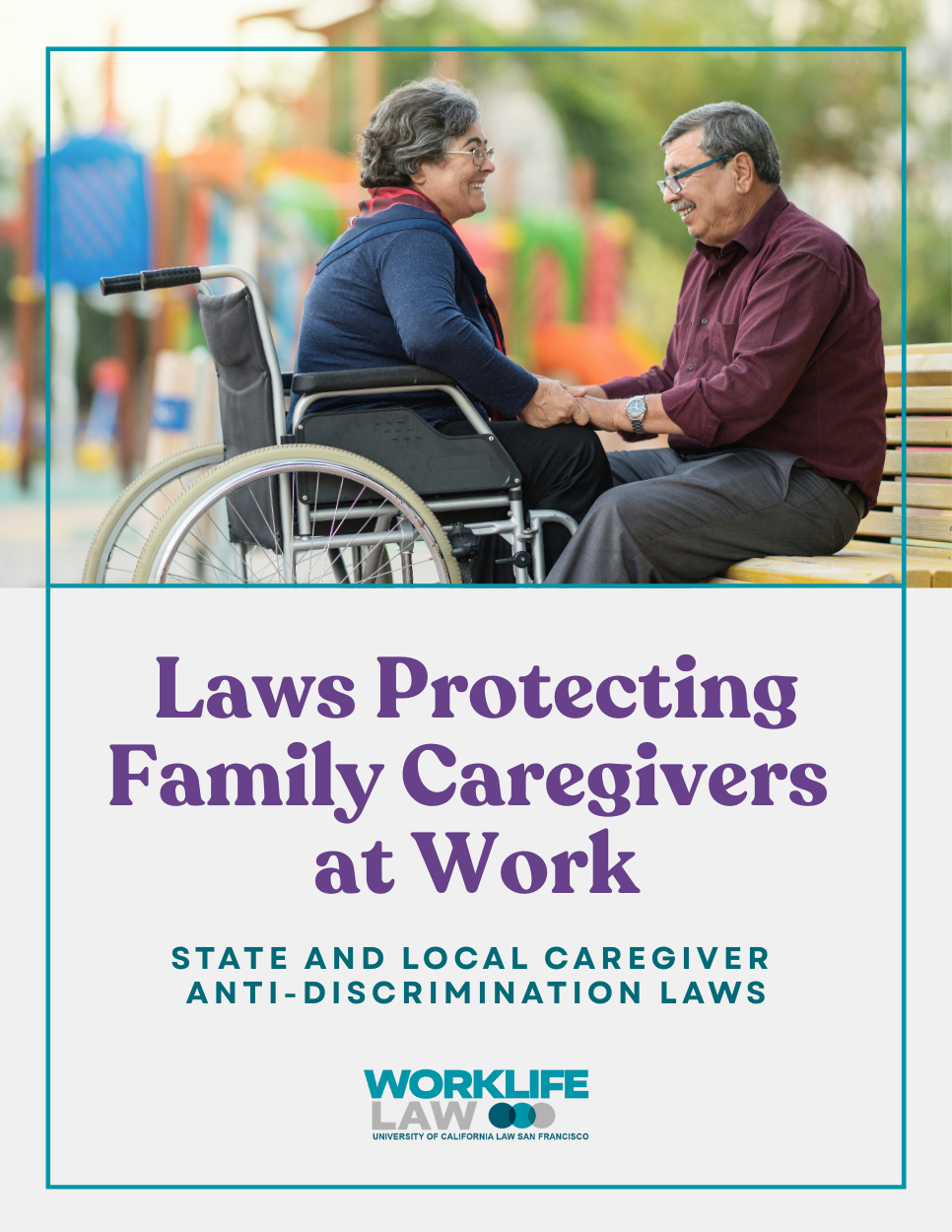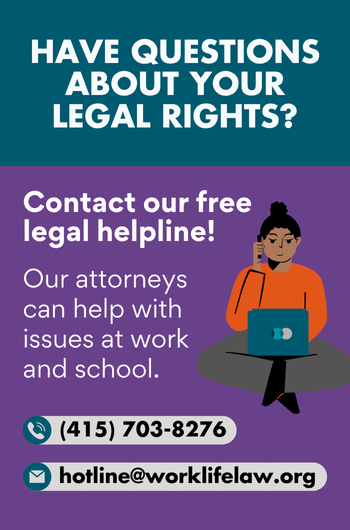Family Caregiver Discrimination, also called Family Responsibilities Discrimination (FRD), is employment discrimination against workers who provide care for a family member.
Family caregivers provide care to a family member who is aging, disabled, or a child. The majority of family caregivers are also employed, with many older people and people with disabilities depending on their caregivers’ wages to put food on the table, keep a roof over their head, and access health care. For these families, maintaining income isn’t just important; it’s essential for survival. But employment often also comes with challenges–bias against caregivers at work remains common and many caregivers struggle to access family leave. As result, many are forced to choose between their jobs and providing care for their loved ones.
Thankfully, many family caregivers have rights under a growing number of laws. The Center for WorkLife Law uses the power of the law to ensure no one is forced to choose between caring for their loved ones and keeping the paying job they need to survive. To learn more, access our tools for caregivers, public policy advocates, and employers.




